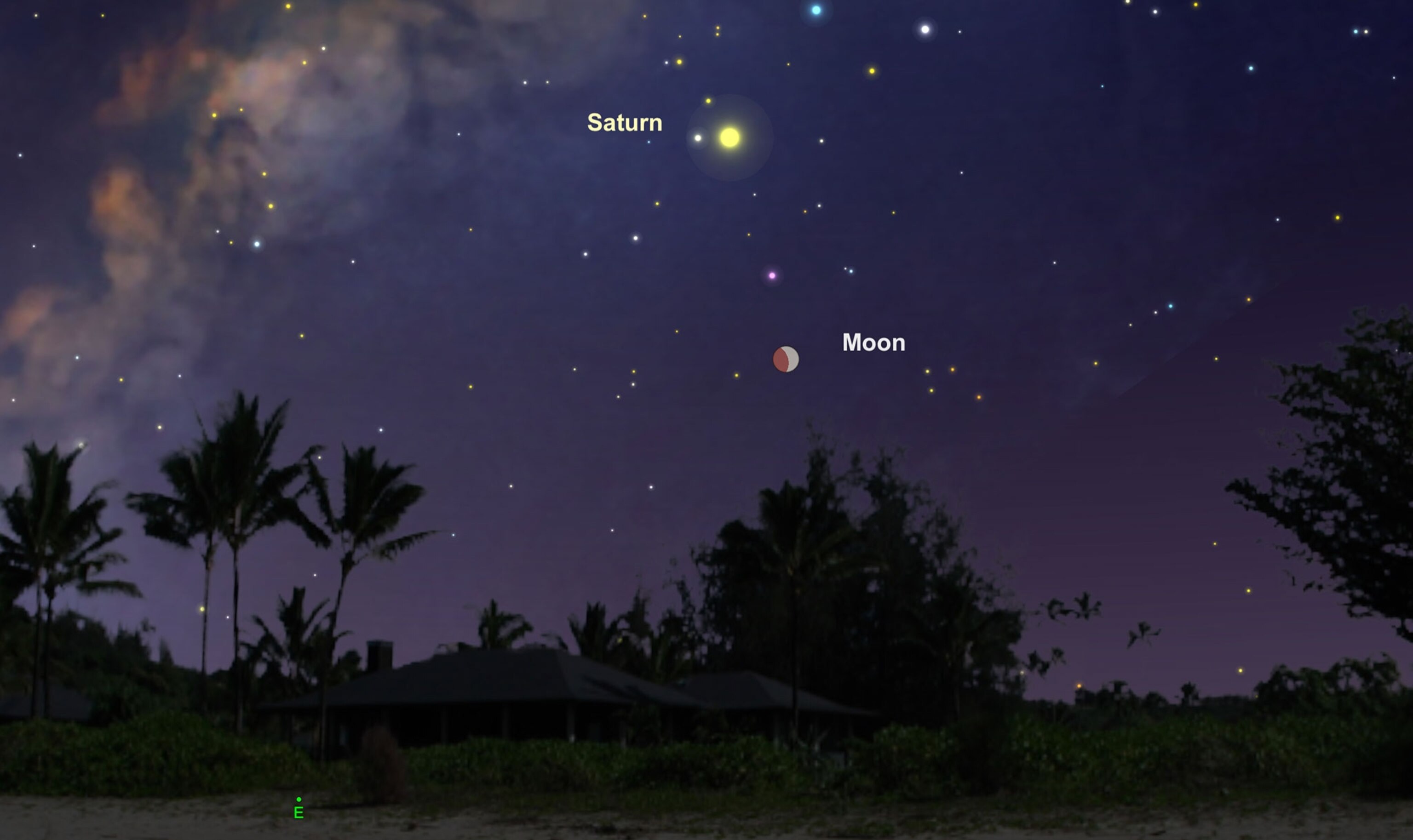
See a lunar eclipse on the Apollo 11 launch anniversary
Lucky sky-watchers will see the moon fall into partial darkness on the same night as the 50th anniversary of the start of the historic mission.
On July 16, 1969, the crew of the Apollo 11 mission launched on their historic trip to land the first humans on the moon. Now, 50 years to the day, people on Earth will be able to commemorate that moment by watching the moon undergo a deep partial eclipse.
Observers in Europe and Africa will witness the lunar disappearing act on the night of July 16, with the most dramatic part of the eclipse arriving at 5:31 p.m. ET (21:31 UT). Keen-eyed sky-watchers should see the moon undergo a noticeable decrease in brightness and maybe even a slight change in color. Stargazers in the Middle East and eastern Africa will see the greatest extent of the eclipse occur around their local midnight.
Viewers across parts of Asia and the Pacific basin will get their turn to see a big bite taken out of the moon in the early morning hoursof the 17th, just before the moon sets in the west. And although people in North America will unfortunately miss out on the sky show, they will have opportunities to see it broadcast live from various locations.
Deep shadow
A lunar eclipse occurs when the sun, Earth, and the moon align so that Earth’s shadow falls across the lunar disk. During total lunar eclipses, the entire moon is engulfed in the darkest part of the planet’s shadow, called the umbra, which can turn the silvery orb a ruddy orange or even a deep blood red.
This week’s lunar show is a partial eclipse, in which only a portion of the moon’s face is obscured, and it does not change color dramatically. But this eclipse will see Earth cast its deep umbral shadow across nearly 65 percent of the visible lunar disk over the course of the three-hour event.
The event technically begins at 2:44 p.m. ET (18:44 UT) with a penumbral eclipse, when Earth’s more diffuse outer shadow, or penumbra, falls across the moon. The first stages of the true partial eclipse will be visible across South America beginning at 4:02 p.m. ET (20:02 UT), just as the moon is rising over the eastern horizon.

The partial eclipse will end when the moon exits the planet’s umbral shadow at 7:00 p.m. ET (23:00 UT), and the penumbral eclipse will end at 8:17 p.m. ET (00:17 UT).
Watch from anywhere
Generally, between two and four lunar eclipses occur each year. The last total lunar eclipse was on January 21, 2019, and this week’s eclipse will be the last one of any kind for the year.
The next four lunar eclipses in 2020 will unfortunately be shallow ones, making them a challenge to see. Astronomy fans will have to wait until May 21, 2021, for the next total lunar eclipse, when we’ll get the chance to really see the moon dramatically darken.
And if you are clouded out or on the wrong side of the planet for this week’s lunar eclipse, you can still follow the entire celestial event online via livestreams.
The website timeanddate.com will begin their webcast as the penumbral eclipse begins at 2:43 p.m. ET and will air the event until 8:17 p.m., when the last bit of Earth’s shadow slips off the moon.
The Virtual Telescope Project will also have their lenses focused on the eclipse starting at 20:30 UT, as it unfolds above skyline in Rome, Italy—the birthplace of Apollo 11 command module pilot Michael Collins.
Clear skies!